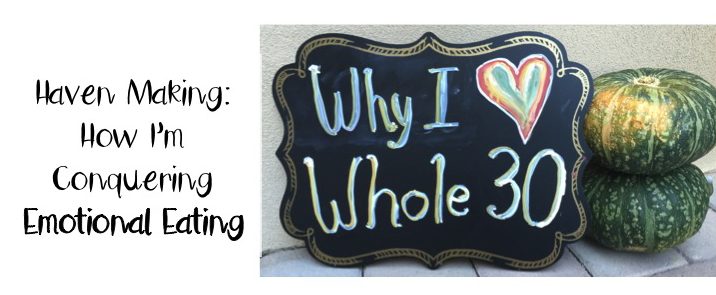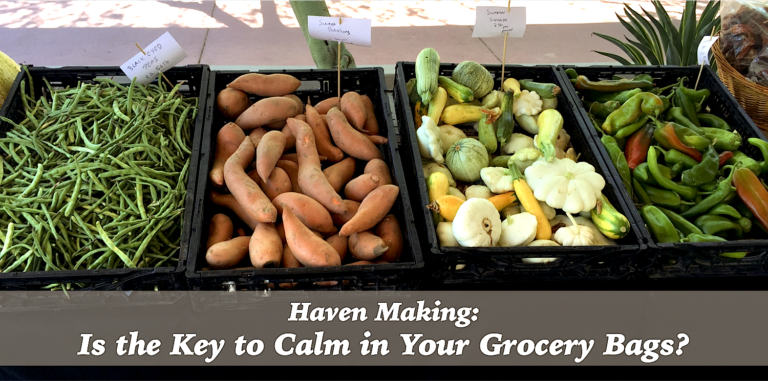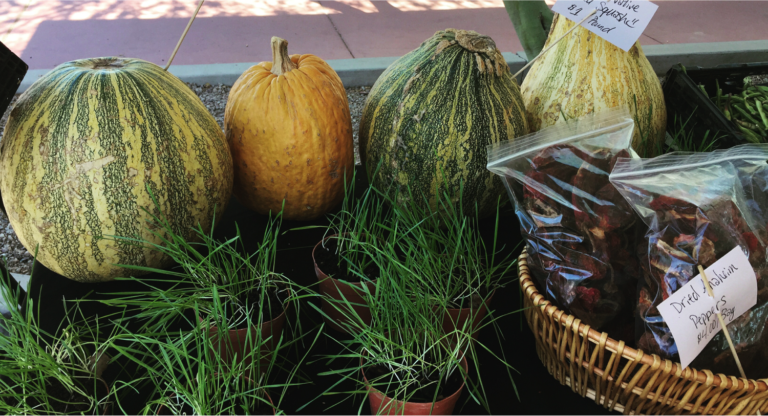Grocery Shopping for More Calm and Better Immunity
We’ve covered the “why” for putting more whole foods into our grocery bags (more calm and better moods, and increasing immunity); now let’s dig into the how.
Making food changes in the home can be pretty overwhelming, especially in very busy households. I just remind myself that little steps can make a big difference, and every good choice makes a difference. Also, even though healthy habits are so important, I don’t stress over everything my family eats (That wouldn’t be healthy!)
Here are ten simple things that I’ve done that help lead to better moods and healthier immune systems:
- Start reading labels. Even if you don’t make any other changes at first, this one can be an eye-opener and can increase your awareness of what’s in your foods. The old adage “If you can’t pronounce it, you probably shouldn’t eat it” is true. If you have to choose between two items, look for the one that has fewer ingredients and additives.Look at the sugar and sodium content in labels. You will be shocked. Be careful to look at how many servings are in an item – nutritional labels are per serving. If there are three servings in a bottle, you have to multiply the sugar and sodium times 3 to know how much is in the bottle. (This is especially important when looking at juice and drinks like teas and lemonade).
- Watch out for artificial sweeteners. The brilliant marketing for artificially sweetened drinks calls them “Zero”, but this doesn’t mean zero side effects. Artificial sweeteners not only fuel sugar cravings, they can contribute to neurological issues (for more on this read Russell Blaylock’s eye opening book “Excitotoxins”) and according to one study can increase risk for type 2 diabetes.
- Buy more organically grown foods. Organic foods have much fewer chemicals and pesticides which can lead to fewer sensitivities. They are also typically grown with more humane and environmentally friendly practices than commercial foods. Organic food is becoming more affordable and available than ever. Try your local farmers market or even Costco – I get quite a bit of my organic foods from Costco.
- Look at the quantity of sugars and carbs in your grocery bags – things like breads, chips, bagels, crackers, muffins, breakfast cereals. Our American diet is supersized with SUGAR. It’s everywhere, even in health foods. Refined flours from wheat and corn are everywhere as well, which are so stripped of nutrients and fibers that they hit our system nearly like sugar does and cause a spike. A diet high in sugars and refined carbohydrates leads to poor emotional balance, cardiovascular issues, poor immunity, higher stress levels, and lots of cravings for more. Sage advice is to buy most of your foods around the perimeter of the grocery store and less of the bags, bottles and cans.
- Buy less juice and sodas. Drink more water.
- Buy lots of salad makings and veggies. Try eating them with hummus or an olive oil based dressing. One great hack from a friend: She buys a veggie tray every week for her family to snack on. (Remove the dip and replace it with something healthier!) This is a ready-to-go set of veggies, quick to grab from the fridge.
- Buy whole wheat and whole grains. If your child is like mine, she LOVES mac n’ cheese, so I buy Annie’s “Ancient Grains” or whole wheat varieties. We also buy whole grain breads and buns.
- Stock up on good fats – a low fat diet is one of the worst for mental health. Our brains need healthy fats. Take a high quality fish oil supplement, eat salmon (wild caught is better than farm raised), eat coconut and olive oil, and cut down on fried foods. Your brain will thank you.
- Buy healthy forms of protein. For many (including myself) a diet rich in lean, minimally processed meats and lots of vegetables makes me feel best. Look for growth-hormone free, ideally organic beef, chicken, turkey and eggs. Grass-fed / free- range is best. If you do buy processed meats (like pastrami or lunch meat), make sure it is nitrate and nitrite-free.If you buy dairy products, buy hormone-free (BGH-free), preferably organic as well. But do watch out for dairy sensitivities, as dairy can contribute to seasonal allergies, sinus issues, and digestive problems for some.
- Prepare, prepare, prepare. Take a few hours on the weekend to plan and prep meals for the week. Wash and cut-up fruits and vegetables. Make a soup or a meatloaf that you can warm up in 5 minutes during the week. When the week gets going, it can be really hard to squeeze in healthy food prep, and making some things ahead can prevent a desperate stop at a drive-through. (been there, done that many times!)
Buying healthy groceries and making healthy steps takes some extra planning, but it doesn’t have to be overwhelming. Best of all, it pays you back many times by reducing stress, boosting energy and building immunity against illness.
In making my home a haven, providing healthy food is one of the most important things I can do. Health is one of the very most precious things I have. It allows me to have energy to care for and play with my kids. It allows me to function with emotional stability. Loss of health for a period of time can be one of the biggest setbacks a person can experience in life. It’s so very critical for me to take care of my health and to teach my children to care for their health too.
While eating whole foods is just one piece of the puzzle for maintaining health, it is a big piece. The investment of time and energy on health is never wasted, never regretted. Little steps make big wins.






